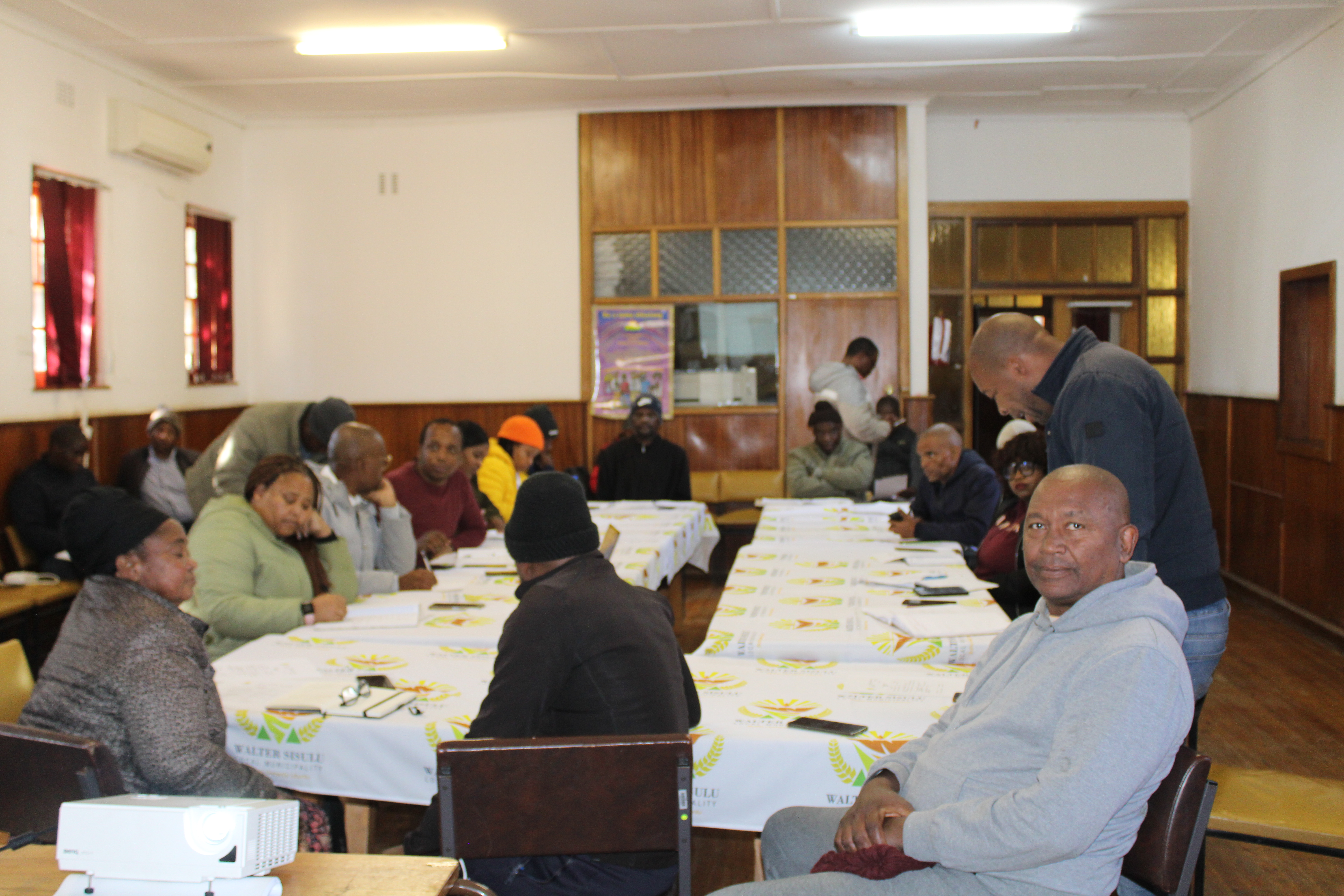Enhancing community development through the Community Works Programme

Story: Samkelo Fetile | Photo: Samkelo Fetile
The Local Reference Committee (LRC) for the implementation of the Community Works Programme (CWP) recently held a crucial meeting, marking a significant step forward in addressing unemployment and poverty in the community. This programme is situated in the Office of the Mayor, Cllr Vania Davids, Walter Sisulu Local Municipality (WSLM), who has delegated authority to Cllr Wesizwe Moeti, WSLM, who chaired the meeting. The meeting was attended by representatives from various government departments, including Cooperative Governance & Traditional Affairs (COGTA), Department of Social Development (DSD), Department of Health (DoH), and Department of Sports, Recreation, Arts and Culture (DSRAC), highlighting the collaborative effort to ensure the success of the CWP.
CWP is designed to provide access to a minimum level of regular and predictable work opportunities for the unemployed and underemployed. Recognising that sustainable employment solutions take time to reach the most marginalised, the CWP acts as an employment safety net. This programme aims to strengthen the economic agency of people in impoverished areas by enhancing skills through work experience and appropriate training. Additionally, it contributes to the development, provision, and maintenance of public assets and services in poor communities, while reinforcing community development approaches that enhance security, dignity, and social and economic inclusion.
Currently, the CWP Implementation Policy is set to replace the CWP manual, and the number of participants in WSLM has been increased from 1,750 to 2,100, with a particular focus on increasing participant numbers in Maletswai.
Programme objective
The primary objective of the CWP is to provide a safety net for poor, unemployed, and underemployed individuals by offering them regular and predictable work opportunities. This enables them to earn a monthly wage of R105.00 per day for two days a week, eight days a month, or 100 days a year, for as long as they need it. To reach 100 days, participants are required to work an extra two days in November and December each year. Supervisors receive a rate of R130.00 for 20 days a month.
